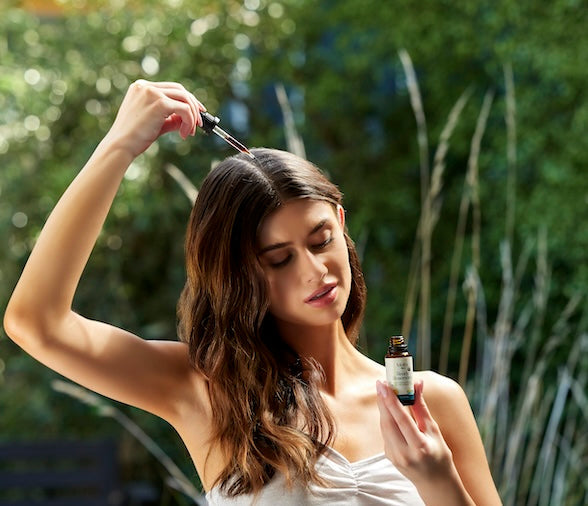
Rosemary vs. Other Essential Oils: Which is Best for Hair Growth?
When it comes to natural remedies for thinning hair, essential oils are some of the most searched-for solutions. But which ones really work? Let’s look at how rosemary oil compares to other popular essential oils for hair growth—lavender, peppermint, and tea tree.
Rosemary Oil: The Research-Backed Favorite
Rosemary essential oil is one of the few natural oils studied head-to-head in a clinical trial with minoxidil, the leading over-the-counter hair regrowth treatment.
Stimulates circulation: Rosemary oil improves scalp blood flow, helping deliver oxygen and nutrients to hair follicles.
DHT-blocking potential: Compounds like carnosic acid 1,8-cineole may help reduct the effects of dihydrotestosterone (DHT), a hormone linked to male and female pattern hair loss.
Clinical Trials: A 2015 randomized study showed rosemary oil was just as effective as minoxidil 2% after six months of use - without the same risks of itching and irritation.
Bottom line: Rosemary oil is the most science-supported essential oil for hair growth, making it a strong natural alternative or complement to pharmaceutical treatments.
Lavender Oil: Calming but Limited Evidence
Lavender oil shows promise for scalp health and potential regrowth, but scientific support in humans is still early.
- Shown in animal studies to increase follicle number and depth.
- Naturally antimicrobial and soothing to the scalp.
-
Human studies are limited, so benefits for hair growth are still emerging.
Rosemary vs. Lavender: Both oils support scalp health, but rosemary has stronger clinical evidence for hair regrowth.
Peppermint Oil: Cooling Circulation Booster
Peppermint oil is a powerful scalp stimulator with some early results, though human trials are still limited.
- Menthol in peppermint oil dilates blood vessels, boosting scalp blood flow.
-
A mouse study showed it promoted growth even faster than minoxidil.
-
Needs more human research, but great as a stimulating scalp oil.
Rosemary vs. Peppermint: Rosemary is better validated in human studies, while peppermint has been shown to increase circulation in animal research.
Tea Tree Oil: The Scalp Purifier
Tea tree oil keeps the scalp clean and balanced, laying the foundation for healthy growth.
- Known for its antimicrobial and antifungal properties.
- Helps reduce dandruff, itch, and buildup—creating a clean scalp environment for growth.
-
Best used in small amounts or blends to avoid irritation.
Rosemary vs. Tea Tree: Rosemary directly stimulates growth, while tea tree supports the scalp environment that allows growth to happen.
Melita Organics Rosemary Oil Blend for Hair Growth
At Melita Organics, purity isn’t just a promise—it’s our foundation. Ready Rosemary, Our Certified Organic Hair Growth Oil includes 100% pure, steam-distilled rosemary oil blended with cold-pressed, unrefined pumpkin seed oil. This ensures you get the full potency nature intended.
Why our rosemary oil stands out:
- Certified Organic: 100% USDA Certified Organic by Ecocert.
- Therapeutic-grade: Steam-distilled for maximum benefit.
- Trusted Purity: We conduct independent third-party testing to verify botanical species and quality.
-
Eco-conscious: Responsibly sourced from the Mediterranean to protect both the plant and the planet.
While many essential oils hold promise for hair health, rosemary oil remains the best-supported by both tradition and modern science. If you’re looking for a natural way to support hair growth, rosemary oil is the standout choice.
When paired with other botanicals in thoughtful formulations like Melita’s Ready Rosemary Organic Hair Growth Oil, it can be part of a powerful ritual for thicker, healthier-looking hair.